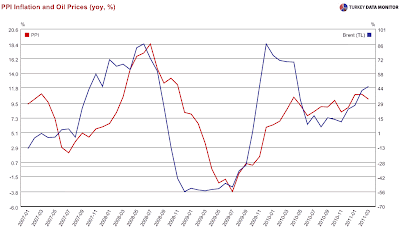I just finished all the contracts for my
moonlighting activities, and all the haggling has given me a complete new look into Industrial Organization, one that never crossed my path during my undergrad and grad studies of the subject.
Empirical IO has pretty standard measures for measuring the degree of competition in any industry. But once you dig into "the field", you see that simple measures are flawed.
For one thing, measures based on the number of competitors or profits do not work at the local level. For example, there are quite a few major wine producers in Turkey, but there are only several serving Marmaris, and out of those, only three selling bag-in-the-box wine.
To give another example, most small-scale services guys are working almost like monopolies, despite the huge number of suppliers. For example, I found out, when we were looking into to have a simple ladder for our new pier, that chrome craftsmen were charging twice the prices in Izmir. We ended up working with a guy from Izmir, who was in town for a big job at another hotel; he would have never come for our small job...
Nor is market share a perfect measure: Mey,
recently acquired by Diageo, has around 90% of the hard drinks market, but the presence of even two very small producers guaranteed that their prices were competitive.
Then, there are the micro concerns: It depends on how much a firm is battling its competitors, i.e. willing to forgo profits just to increase its portfolio. And timing is everything, at least in tourism: The suppliers have "budgets" early in the season, which they can use to offer better prices for hotels they really would like to add to their portfolio. As for the hotels, being big always helps, so a sector that looks monopolistic to a small apart hotel can seem perfect competition to a 2000-bed resort.
Here are my small notes from field work, with my subjective competitiveness grade (0 being no competition, 10 being perfect competition):
Coffee/Tea and Concentrated juices (9): 4 producers serving, one well-known brand unwilling to lower her prices, but the other three behaving as if in perfect competition.
Raki/ hard drinks (7): Quite competitive, when you consider one producers has 90% of the market.
Beer (3): Two major brands, but entry of a third, low-cost producers increases competitiveness considerably. I would have given a "1" last year.
Coke (7): Only two major brands, a couple of local smaller guys, but still rather competitive.
Ice Cream (8): Only two producers, but really cutthroat (toward each other)
Wine (2): As I said above, only three guys that can make offers, but one can offer prices much lower the others, and since he knows it, he can easily dictate his still-quite-high price.
I have no idea if I will ever make use of this in a more concrete context, maybe a column or something else, but I can just leave them here for the time being...


























